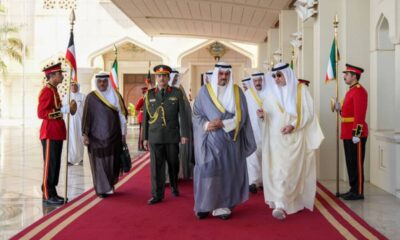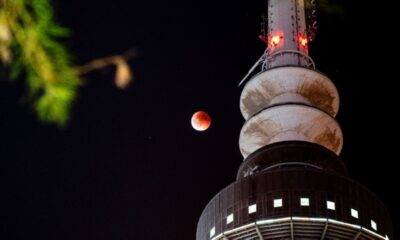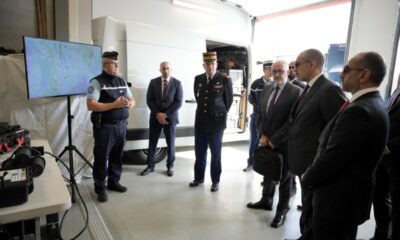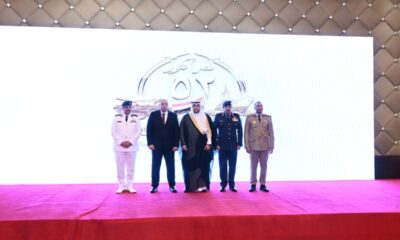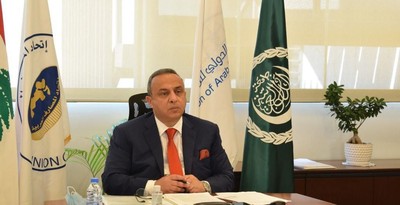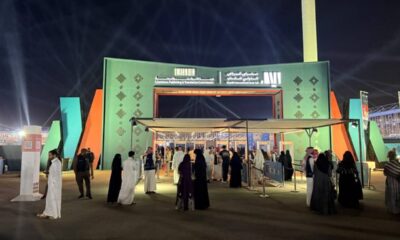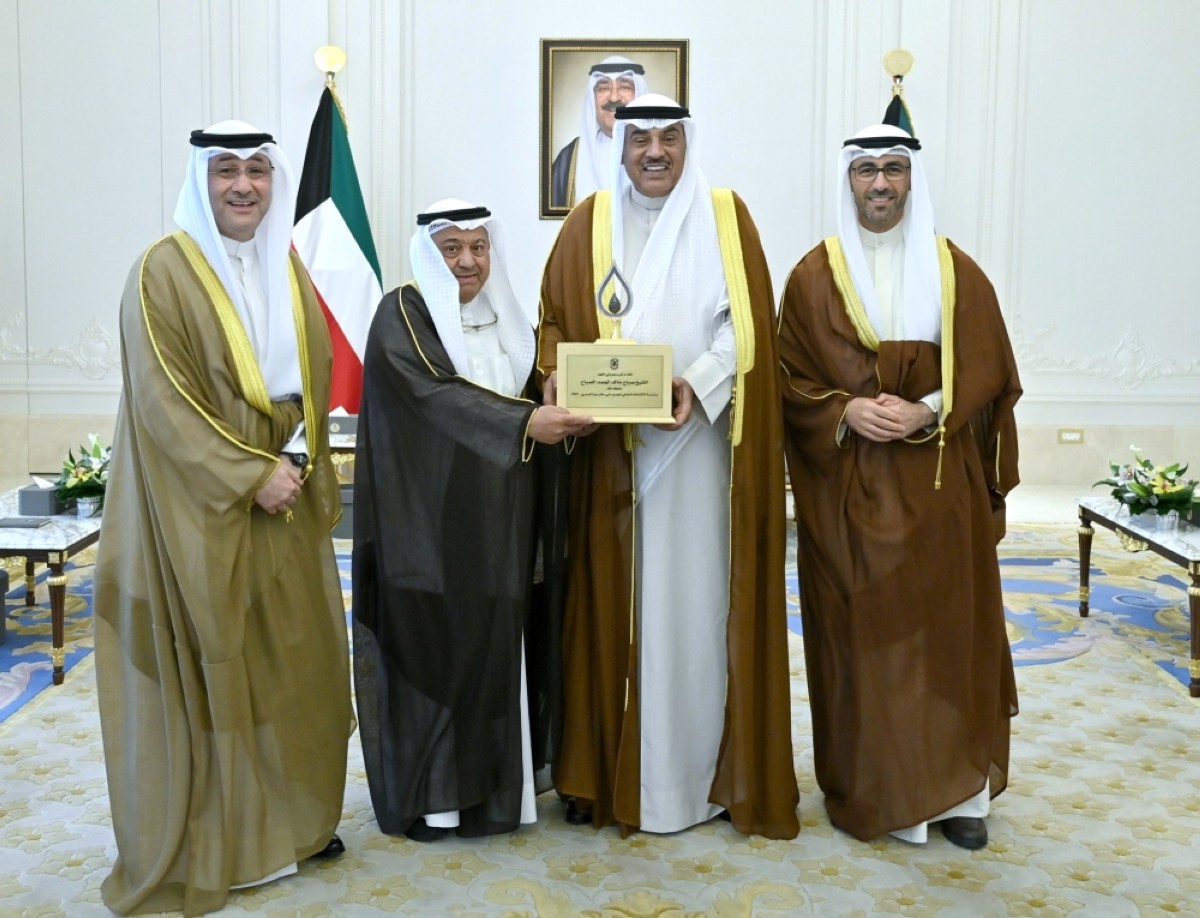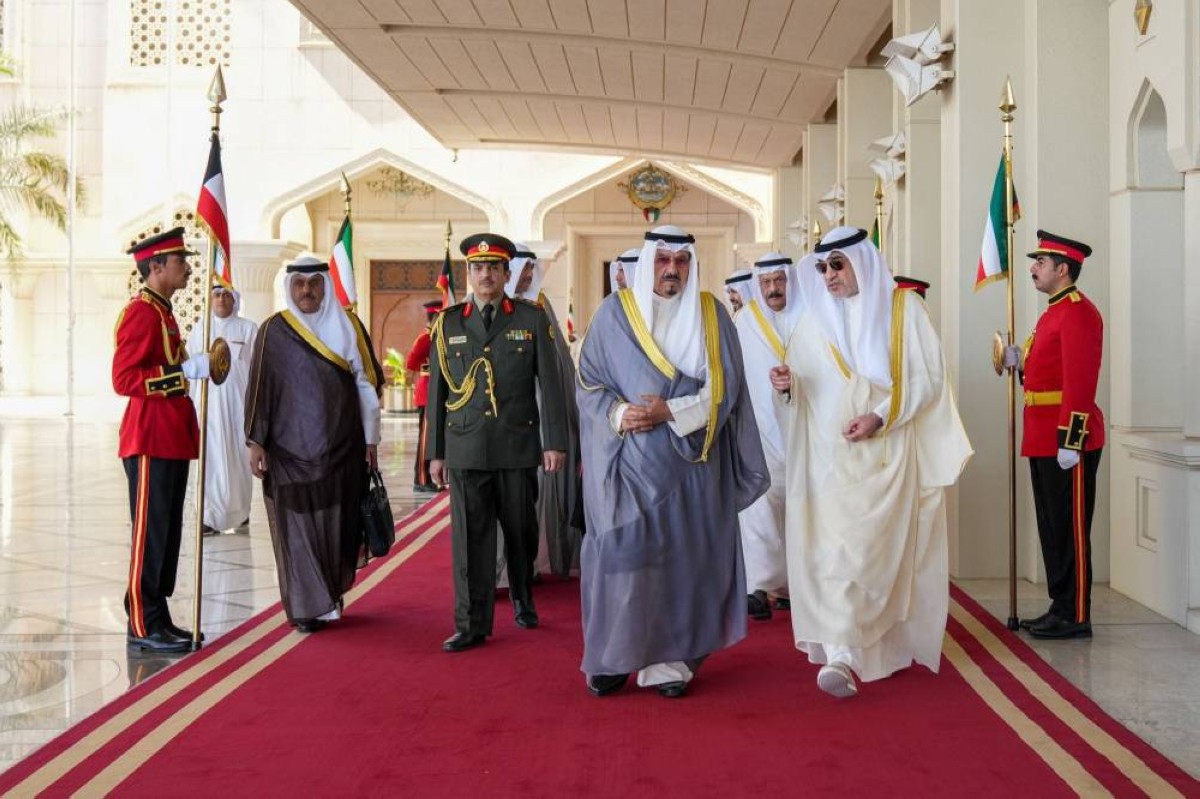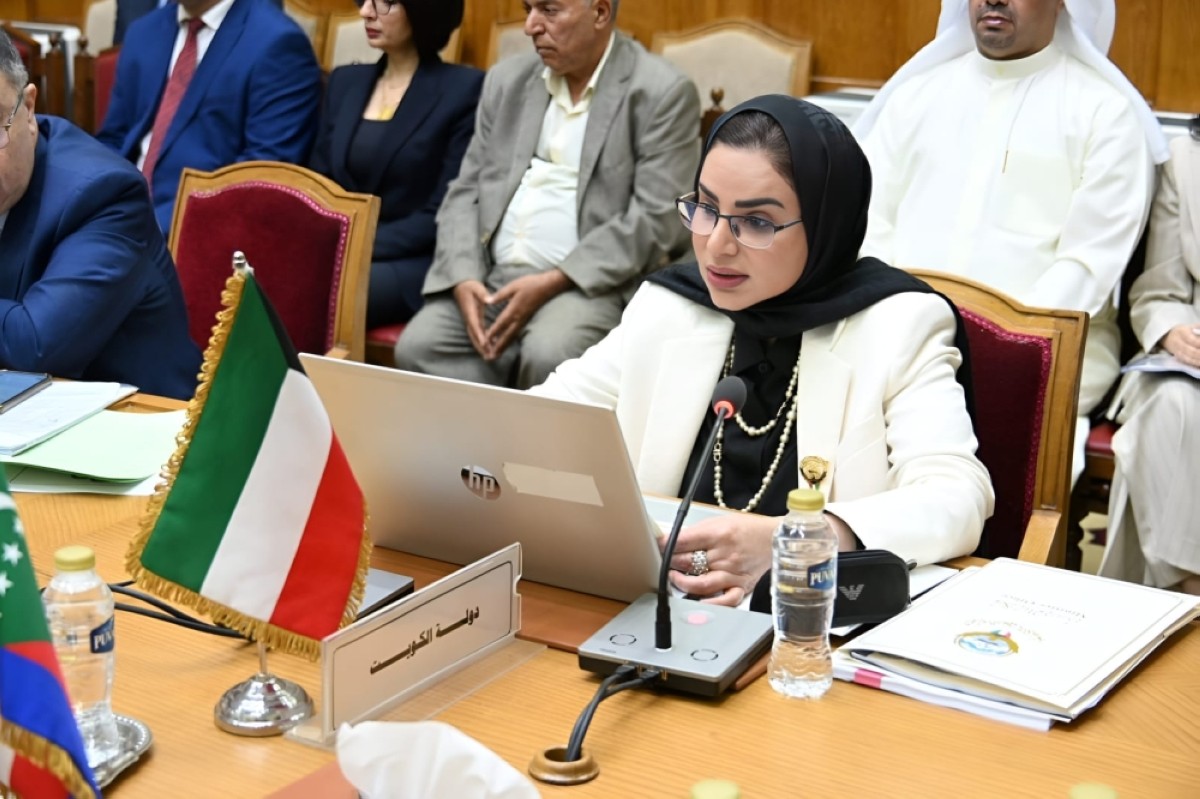KUWAIT: Abdullah Al-Mutawaa was on pins and needles waiting to hear about whether he would be joining the Global Sumud Flotilla headed to Gaza. He had been in Tunisia since mid-August, accompanied by his dear friend of 30 years, Khalid Al-Abduljader. The two, along with four other Kuwaiti citizens and hundreds of volunteers from the Gulf and around the world, had put their lives on hold and said farewell to their loved ones before traveling to the country. Their sole hope was to board a boat and take part in the effort to break the siege imposed by the Zionist entity on Palestinian territory.
“This is a difficult mission – not an adventure or a sightseeing trip. It is a rightful and necessary mission, one that is worth making sacrifices for,” Al-Mutawaa said from aboard one of the boats in the flotilla. The fleet of vessels carrying activists and stocked with medical and food supplies is slowly approaching Gaza. The convoy, the largest of its kind, set sail from Spain and Italy in late August and early September. It regrouped in Tunisia, where it was joined by more boats before heading toward Gaza in mid-September.
Delays and uncertainty
Logistical issues threatened to put the two friends’ ambitions to a halt. The civilian-led mission faced two drone attacks and what Al-Mutawaa referred to as intentional sabotage, which rendered some of the boats unusable. Some of the boats have also failed technical inspections conducted to ensure they are prepared for the journey. Eventually, the steering committee was forced to reduce the number of people who could board the flotilla. The boats were supposed to set sail from Tunisia on September 4, but for six days after that date, Al-Mutawaa and his fellow Kuwaitis weren’t sure if they would be able to join. “Every day, we would go to the port and try to board a boat,” he said. “Some of the boats were under maintenance and were repaired successfully, but others had their engines destroyed.”
Only three of the six Kuwaitis selected to join the flotilla were able to board: Businessman Al-Mutawaa, Lawyer Al-Abduljader, and Dr Mohammed Jamal. Life coach Duaa Aldrees, Lawyer Ahmad Al-Awadhi and Engineer Ahmed Abdulkarim couldn’t secure a boat in time to join the rest. They continue to support the flotilla’s mission by spreading the word on social media. “This is about standing with our people in Palestine. We need real action because prayers from afar, talk and donations are not enough,” Aldrees told Kuwait Times, explaining why she tried to join the flotilla. “We can’t just carry on with our normal lives while an entire people are being annihilated.”
‘Divine decree’
The way Al-Mutawaa and Al-Abduljader finally boarded a boat was a “a divine decree so perfectly arranged that the human mind cannot begin to comprehend it.” The day before they set sail, two friends prayed istikhara, a special prayer to seek Allah’s guidance when facing a significant decision. “We just prayed to God, saying: O Lord, if (joining the flotilla) is good for us, make it happen, and if not, take it away,” said Al-Mutawaa. The next morning, he decided to check out of their hotel and carry essentials for the flotilla journey, such as his passport, in his backpack. “That morning, I was leaving no matter what,” he told Kuwait Times. “(Al-Abduljader) asked me: ‘Do you know something I don’t?’ I told him: ‘No, but God has given me this feeling.’”
Something unexpected happened during the GCC group’s daily trip to the port – they were told that a seat had opened up. Having checked out of the hotel, Al-Mutawaa immediately volunteered. “I told Khalid and the sisters with me: ‘Excuse me, but I’m the only one among us with my passport and my things ready’. They said: “You’re right – we can’t argue with that,” he said. “Who broke down? Khalid, of course. I told him: ‘No way, I won’t leave you behind. I’ll fight for you to come with me. We kept pleading with those in charge of the boat: ‘We’re like one body, split into two souls. We can’t be separated’.”
Raising Kuwait’s name
Eventually the two friends were allowed to board the flotilla together. “Khalid has a brave heart – may Allah protect him,” his sister Fatima told Kuwait Times. “In the first couple of years (of the Zionist entity’s genocide in Gaza), he was very exhausted mentally. We were all tired, of course, but he was the most affected.” Most of Khalid’s family, except his mother and niece, had no knowledge of his intention to join the flotilla until he was in Tunisia. A few days before he boarded the boat, Khalid broke the news, asking for prayers from his family. “When I heard the news, I got a little worried, but then I thought to myself: ‘This honor truly suits him,’” she said. Kuwaitis have not only applied to join the flotilla, but many have also donated thousands of dinars to support preparations of the boats and aid supplies. Al-Abduljader and Al-Mutawaa both highlighted Kuwait’s strong, longstanding support for Palestine as one of the driving forces behind the efforts.
“Our role models are Kuwait’s leaders: Sheikh Sabah the Amir of Humanity, Sheikh Saad, the Father Amir, and Sheikh Jaber, the Amir of Hearts. Our journey and boarding of these ships were guided entirely by their example and our love for their deeds,” said Al-Mutawaa, noting that he was recognized by the late Amirs Sheikh Jaber Al-Ahmad Al-Sabah and Sheikh Saad Al-Abdullah Al-Sabah in competitions in the past. “In every photo I take, I make sure Kuwait’s flag is prominent,” he added. “We are the children of this country. We remain steadfast, proudly raising Kuwait’s name.”
‘Our allegiance is to justice’
Boarding the boat was only the beginning of a long journey at sea, buoyed by their faith in the flotilla’s humanitarian message. “Our fleet is a humanitarian fleet. If you confront us with an army or with violence, we will not carry out any violent operation. We have a few medicines and milk for babies,” he said. “This is the purpose of our mission: a humanitarian message to break the siege. If we break the siege, we’ve completed the mission, and we leave.” The coalition of organizers, humanitarians, doctors, artists, clergy, lawyers and seafarers come from all over the world and are independent and unaffiliated with any government or political party. “Our allegiance is to justice, freedom, and the sanctity of human life,” the Sumud flotilla website says.
Everyone on the boat – participants and crew alike – was carefully vetted through an extensive process that included video interviews and a wide range of training sessions simulating various situations. The sessions covered how to administer first-aid and handle emergencies such as fire, drowning, suffocation and assault. The volunteers also received legal training, where they learned about their rights in different waters: territorial seas, international waters, European waters and Gaza’s waters. They also trained in what to do in case Zionist soldiers intercepted their vessels.
The activists are aware of the security risks the journey could bring – the Zionist entity had previously attacked humanitarian flotillas with the same mission and Zionist officials have threatened to treat those on board the Sumud as terrorists. “We knew, before we set foot on the flotilla, the opponent’s mindset and the absurd threats they made. The very ridiculous things they said did not intimidate us nor weaken our resolve,” he said.
Al-Mutawaa remained calm when an emergency siren blared, abruptly ending his conversation with Kuwait Times. “The siren we heard that time was due to a suspected threat,” he explained after the danger had passed. The threat could be due to the sighting of drones and reconnaissance aircraft, which Al-Mutawaa said often passed overhead. If a threat is detected and the siren sounds, passengers are instructed to put on life jackets and move below deck until the team’s specialists give the all-clear.
Dangers from the sky, sea
The International Committee to Break the Siege on Gaza reported Sunday that drones repeatedly flew over the Global Sumud Flotilla, some unusually close, raising concerns.” Who is sending drones full of brutality at a peaceful flotilla bringing aid to children?” asked Dr Jamal on his Instagram account. “Children in Gaza live under a symphony of drones and terror. This only strengthened our conviction: we are on the right path, … and God willing, we will break the siege.” Threats could also come from the sea itself. “You’re not allowed to engage with anyone who approached from another vessel, unless they first identified themselves and you verified who they were. And you could never answer questions about the mission itself.”
If someone requested basic help – water, a fire extinguisher, or other supplies – the crew would discuss how best to respond. “We offered humanitarian aid without hesitation, since our mission was humanitarian,” he said. Weather conditions at sea have also been turbulent, with high winds leaving those on board exhausted. “It was tough,” he said, describing one of many stormy nights. “The food cans we had brought with us to eat were rolling around. The boat was shaking as we performed Fajer prayers. We could barely stand upright.”
A ‘sweet’ delivery
Sixteen countries – including Turkey, Qatar, Oman, Brazil, South Africa and Spain – issued a joint statement urging protection for the Global Sumud Flotilla. They warned that any attack on the vessels or detention of participants would violate international law and trigger accountability. Al-Mutawaa called on communities living near strategic areas such as straits, ports and bridges to block them if the flotilla is obstructed. “If you hear of our obstruction, close that artery. Shut it down. Make it felt – logistically – in Europe, in Africa,” he said. Al-Mutawaa also called for closing Zionist entity embassies in the GCC region, to stand against unlawful or violent acts against the flotilla
“If we’re faced with violence, we won’t be resisting or doing anything of the sort,” he said. He stressed that the flotilla had no intention of going ashore. “Even if we were told to dock, we wouldn’t – that’s never our aim,” Al-Mutawaa said. Instead, their plan is to stay off the coast while small local boats approach from Gaza to receive aid and supplies. The deliveries happen safely, with no harassment and no interference with either the flotilla or the boats.
Al-Mutawaa said his greatest wish is to distribute the chocolate and candy he brought to Gaza’s children. He described how one Palestinian family from Gaza reached out to him on social media after learning he would be on the flotilla. “The sweetness of the little girls, when they were talking to us via video from Gaza … I asked one of them, ‘Sweetheart, what do you want?’ She said, ‘I want toys, I want chocolate, I want candy,’” he said. As Al-Mutawaa’s boat sailed past a small island in the Mediterranean en route to Gaza, activists exchanged chants with people on shore waving a Palestinian flag: “Free, free Palestine. Free, free Gaza. Stop the genocide.”
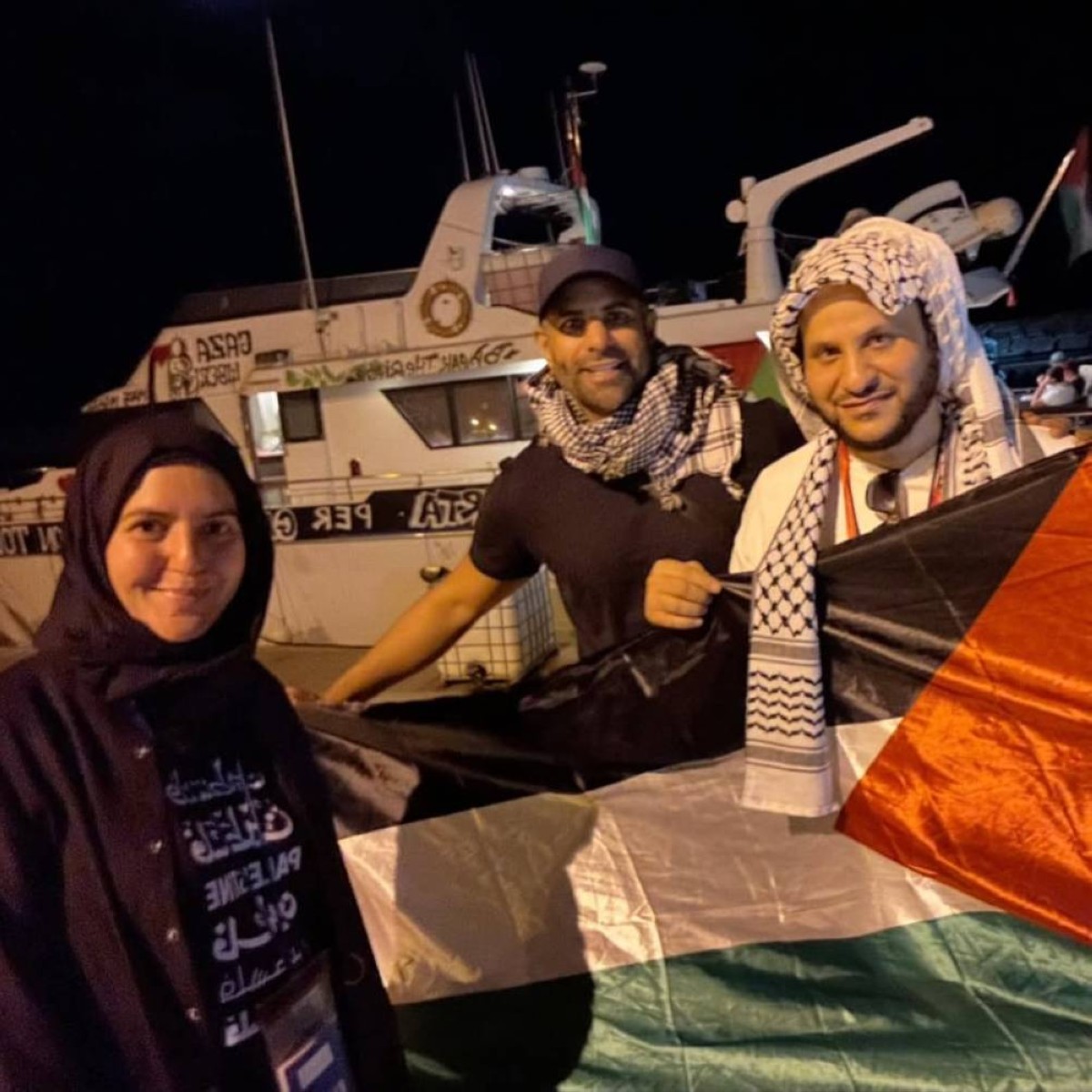

 Latest News23 hours ago
Latest News23 hours ago
 Politics16 hours ago
Politics16 hours ago
 Latest News17 hours ago
Latest News17 hours ago
 Latest News15 hours ago
Latest News15 hours ago
 Politics7 hours ago
Politics7 hours ago
 Latest News6 hours ago
Latest News6 hours ago
 Politics5 hours ago
Politics5 hours ago
 Business7 hours ago
Business7 hours ago
